Referral Interventions Improve Patient Outcomes and Costs
What topics have most interested Transcend’s readers and listeners like you? It’s no great surprise that our most popular podcast and one of our most highly visited blog posts is titled, “Breaking Down Barriers to Earlier Referrals.”
That content features insights from Michael Paletta, MD, FAAHPM, Chief Medical Officer and Senior Vice President for Hospice of Michigan – the largest provider of hospice and palliative care services in that state.
His words of wisdom are worth revisiting or digesting for the first time if you missed our original post nearly a year ago. And the message is still as relevant as ever.
In a recent article published by American Society on Aging, author Nicole Clagett (who also has been featured as a guest on our podcast) discusses how referral interventions can change the lives of patients and caregivers – as well as the impact on patient health outcomes and healthcare savings.

A pilot study in Wake County, North Carolina, that Nicole’s agency (Transitions GuidingLights Caregiver Support Center) participated in showed earlier interventions resulted in a nearly 20% – or $53,000 – reduction in claims. In addition, a 50% reduction in hospital admissions and readmissions was realized. Those financial advantages are in addition, of course, to the improved comfort and quality of life patients and families received.
If the small sample size of a pilot study in only one county can yield such results, imagine those advantages multiplied across the nation with earlier referral interventions.
So, what are the keys to unlocking some of those obstacles to timely referrals? Let’s revisit a few highlights from Dr. Paletta’s comments.
“The six-month prognosis has really become a barrier,” Dr. Paletta said. “It was chosen way back in the 1980s when the Medicare hospice benefit was first being considered, and they had to make a decision on how long and how inclusive the benefit should be.
“In reality, there’s nothing magic about the six-month prognostic marker and if a patient survives longer than six months on hospice, nothing happens except the hospice provider must continue to evaluate likely prognosis.
“We try to say, ‘Why don’t you think more about six to 12 months?’ because it’s really a common thing for patients in hospice to last longer than 180 days, and yet the vast majority will die within a year. Between six and 12 months is really a better target that fits the circumstances of many terminally ill patients,” Dr. Paletta advised.
Dr. Paletta also discussed the passion of physicians to heal their patients and not accepting the reality of a likely death. “I think there’s some dissonance on the physician’s part,” he said. “On one hand, there’s certainly loyalty to their customer and physicians don’t want that person to feel either that their doctor is abandoning them or has a situation that the doctor can’t handle. When they make a referral to a hospice program, in their own mind they’re saying to the patient, ‘I’m giving up on you. I can’t handle the problems that you have anymore, and I’m done with it. Good luck. You go take care. These people will take care of you.’ They’re really loathe to send that kind of a message to a valued patient.”
To overcome this barrier, Dr. Paletta underscored the importance of ongoing education about the many benefits of early engagement with hospice. “The other thing that we should be talking more about is the body of work that shows that those patients do live longer, and they live better, and it’s from the standpoint of the patients and families themselves,” he said. “If people knew that by pursuing palliative care early in the course and using hospice services at the appropriate time that they would live longer, they would have better control of their symptoms, they would have an improved quality of life, and their surviving family members would feel better about the care that was given to their loved one.”
Transcend works every day to spread messages like these on behalf of our clients. As their communities become educated on the true advantages of hospice and palliative care, our clients indeed see significant increases in earlier referrals, lengths of stay and revenue. If you’d like to discuss how Transcend can help your agency achieve such goals, contact stan@transcend-strategy.com.










